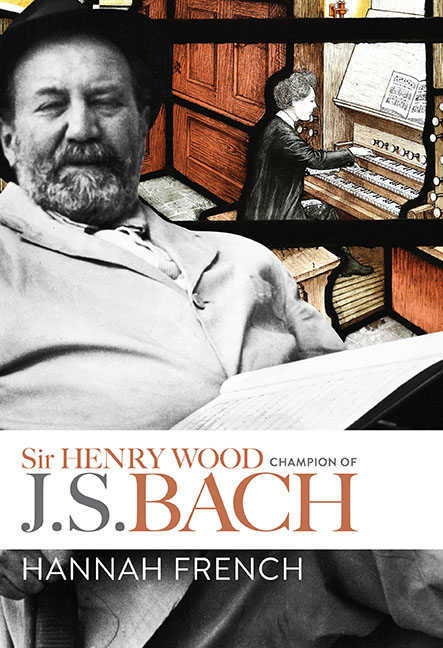Book contents
- Frontmatter
- Dedication
- Contents
- List of Illustrations
- List of Music Examples
- List of Tables
- Prologue
- Acknowledgements
- List of Abbreviations
- PART I CONTEXTUALISING
- PART II PROGRAMMING
- PART III INTERPRETING: ORCHESTRAL WORKS
- PART IV INTERPRETING: VOCAL WORKS
- PART V INFLUENCING
- 11 The Reception of Wood's Bach
- 12 Wood's Bach Legacy
- Epilogue
- APPENDICES
- Bibliography
- General Index
- Index of Works by J.S. Bach
11 - The Reception of Wood's Bach
from PART V - INFLUENCING
Published online by Cambridge University Press: 07 September 2019
- Frontmatter
- Dedication
- Contents
- List of Illustrations
- List of Music Examples
- List of Tables
- Prologue
- Acknowledgements
- List of Abbreviations
- PART I CONTEXTUALISING
- PART II PROGRAMMING
- PART III INTERPRETING: ORCHESTRAL WORKS
- PART IV INTERPRETING: VOCAL WORKS
- PART V INFLUENCING
- 11 The Reception of Wood's Bach
- 12 Wood's Bach Legacy
- Epilogue
- APPENDICES
- Bibliography
- General Index
- Index of Works by J.S. Bach
Summary
To demand of Sir Henry Wood an absolute standard of perfection would be to ask the impossible.
(Dyneley Hussey, 1925)In my young days I heard really musical people say ‘Bach is just a sewing machine,’ and so I set about reading all I could lay hands on regarding his life and his voluminous output. I found that when I played Bach to a metronome, it was undoubtedly mechanical; but having studied Bach's life, I knew that he was of an emotional character in which no mechanical routine could have existed, and I came to the only logical conclusion that he played and jotted down his thoughts as they came, and as with other manuscripts of that period, added no expression or other marks. All expression was obviously self-imposed expression when seated at his organ, his clavichord or harpsichord. I am sure he varied his expression in any given piece according to his mood, for no man was ever a greater experimenter than Bach himself.
THROUGHOUT his career Wood remained faithful to his youthful reflections on Bach, which resulted in performances – especially of the vocal works – that were driven above all by his response to the expression in the music. When, in 1908, The Globe concluded that ‘Mr Wood's individuality was impressed on every bar of the music’, it aptly captured his careful micro-managing of detail. His emotional and occasionally experimental interpretations of the Passions and Mass in B minor drew a mixed reception (as was seen in Chapter 10), but the critics also give a clear sense that Wood's reading was considered an alternative rather than a definitive interpretation. For example, a review of the Bach Choir's performance of the St Matthew Passion on 5 March 1927 under Ralph Vaughan Williams shows a contemporary fascination with contrasting the variety of ways in which the work was performed. Whereas Wood's brisk tempos, especially for choruses, ‘increased the pace of the action’, the critic wrote, the ‘more deliberate approach’ taken by Vaughan Williams with the Bach Choir brought out the ‘nuances of the scenes’. This was typical of Vaughan Williams's style, one that he continued at his Leith Hill Festivals, and also built on a tradition of weightier readings that had evolved at the Bach Choir under the earlier directorship of Charles Villiers Stanford, Henry Walford Davies, and Hugh Allen.
- Type
- Chapter
- Information
- Sir Henry Wood: Champion of J. S. Bach , pp. 241 - 256Publisher: Boydell & BrewerPrint publication year: 2019



